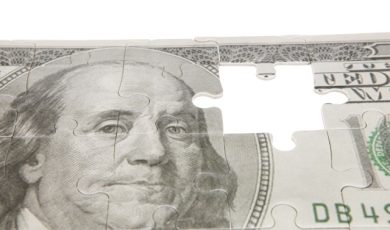Lawmakers in Kansas and Missouri are gearing up to tackle a long-standing issue by pushing for new regulations that would ban indoor smoking in commercial casinos.
With the legislative seasons approaching, the next move on the matter won’t be until January 8, when Missouri lawmakers return to session. Meanwhile, Kansas lawmakers will follow suit on January 13, where the organization Casino Employees Against Smoking Effects (CEASE) Kansas plans to introduce a new bill.
In Kansas there are four state-regulated casinos, and if the bill persists and gets a yes, then these casinos will have no other option than to oblige. They include:
- Hollywood Casino at Kansas Speedway
- Boot Hill Casino & Resort at Dodge City
- Kansas Star Casino at Mulvane
- Kansas Crossing Casino & Hotel at Pittsburg
It is important to note that those casinos owned and operated by Native American tribes would be exempt from the regulations, should they pass into law. Among the tribal gaming facilities is 7th Street Casino.
Casinos exempt from current indoor smoking bans
A bill was introduced in Kansas last January (House Bill 2622) to ban indoor smoking in state-regulated casinos and racetracks.
Although the state was able to ban indoor smoking in most public places since 2010, casinos have managed to fly under the radar. In fact, Kansas is one of just 11 states where indoor smoking in casinos is still permitted.
Many cities and counties have smoke-free laws, but they exempt casinos, allowing them to skirt around local regulations.
The Missouri Clean Indoor Air Act prohibits smoking in public places. That is except in designated areas, which can’t exceed 30% of the total space. However, casinos in St. Louis County are exempt from this rule and can designate up to 50% of their gaming space for smokers.
Civilians weigh in on proposed smoking ban
The debate over banning smoking in casinos has sparked a range of opinions. While some are fiercely opposed, others are adamant that it’s a necessary step. Then there are those who are indifferent, willing to accept whatever outcome comes their way.
According to Melissa Dancer, a casino-goer, the proposal is a clear non-starter. In an interview with KCTV 5, she expressed her frustration with the idea, arguing that areas where kids are allowed can maintain the no smoking ban, like restaurants, but casinos should be exempt as they already have age restrictions to access.
I probably wouldn’t go as much because there are no kids around, and that was the whole reason why banning it in restaurants and stuff, cause there were kids around. This is like the only place we can escape without kids. They should not ban smoking in casinos.
CEASE, on the other hand, is rallying lawmakers nationwide to support smoke-free laws that include casinos. Quite a reach, which now can be seen to be feasible as the coalition only started from Atlantic City in New Jersey, and now it has chapters in seven states. That includes:
- Michigan
- Kansas
- Pennsylvania
- Nevada
- Virginia
- Rhode Island
- New Jersey
For Joe Hafley, the push to ban indoor smoking in casinos is personal. As a security guard at Kansas’ Hollywood Casino, he’s seen colleagues and guests exposed to second-hand smoke. As founder of the Kansas and Missouri chapter of CEASE, Hafley is now urging lawmakers to take action. He told KCTV 5:
85% of Kansans and Missourians do not smoke. We have lots and lots of support from different groups: American Heart, American Lung, Americans for Non-Smokers Rights.
Vice President, Public Affairs & Government Relations at Penn Entertainment Jeff Morris argued that his company has already taken significant steps to mitigate the impact of smoking in their casinos. By installing advanced air filtration systems and creating designated smoking areas, Morris believes they are striking a balance between customer comfort and choice.
As it regards the no smoking ban, New Jersey is currently a hot spot in the discussion. Last August, a New Jersey Superior Court judge delivered a blow to casino workers. They made a ruling against them in a closely watched case. Undeterred, CEASE filed an emergency appeal with the NJ Supreme Court in September, but the appeal was rejected.








